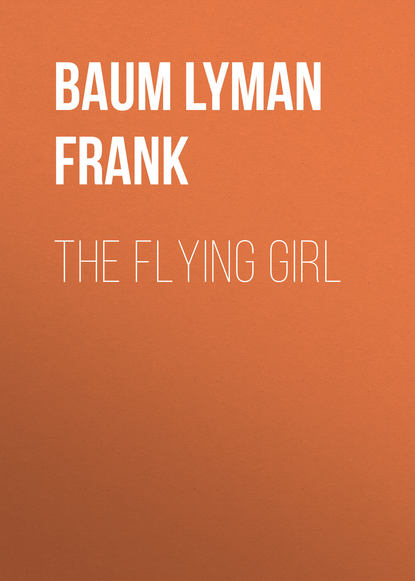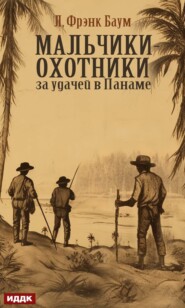По всем вопросам обращайтесь на: info@litportal.ru
(©) 2003-2024.
✖
The Flying Girl
Настройки чтения
Размер шрифта
Высота строк
Поля
“I am sure I can,” she promptly replied. “You must understand – all of you,” turning to confront Mr. Cumberford and Sybil, who were present, “that I am not undertaking this flight from choice. Had Steve been able to exhibit his own aëroplane I might never have tried to fly alone; but it seems to me that our fortune, my brother’s future career, and our friend Mr. Cumberford’s investment, all hinge upon our making a good showing at Dominguez Field. No one but me is competent to properly exhibit the aircraft, to show all its good points and prove what it is capable of doing. Therefore I have undertaken to save our reputation and our money, and I am sure that my decision is proper and right.”
“I agree with you,” said Steve, eagerly. “You’re a brave little girl, Ris.”
“I have but one request to make, Mr. Cumberford,” she added.
“What is it, Orissa?” he inquired.
“Do not advertise me as ‘The Girl Aviator,’ or by any other such name. I prefer people should remain ignorant of the fact that a girl is operating the Kane Aircraft. Can’t you keep quiet about it?”
“I can, and will,” he asserted. “Indeed, my dear, I much prefer that course. It will be all the more interesting when – when – the discovery is made.”
“I do not wish to become a celebrity,” she said, seriously. “One in the family is enough,” glancing proudly at Steve, “and I’m afraid nice people would think me unmaidenly and bold to become a public aviator. I’m not at all freakish – indeed, I’m not! – and only stern necessity induces me to face this ordeal.”
“My dear,” said Mr. Cumberford, looking at her admiringly, “your feelings shall be considered in every possible way. But you must not imagine you are the first female aviator. In Europe – especially in France – a score of women have made successful flights, and not one is considered unwomanly or has forfeited any claim to the world’s respect and applause.”
“The most successful aviators of the future,” remarked Stephen, thoughtfully, “are bound to be women. As a rule they are lighter than men, more supple and active, quick of perception and less liable to lose their heads in emergencies. The operation of an aëroplane is, it seems to me, especially fitted to women.”
“Ah!” exclaimed Sybil, with a whimsical glance at the speaker, “I have discovered my future vocation. I shall aviate parties of atmospheric tourists. When the passenger airships are introduced I’ll become the original sky motoress, and so win fame and fortune.”
Steve laughed, but shook his head.
“The airship of the future will not be a passenger affair,” he predicted, “but an individual machine for personal use. They’ll be cheaper than automobiles, and more useful, for they can go direct to their destination in a straight ‘air-line.’ Men will use them to go to business, women to visit town on shopping expeditions or to take an airing for pleasure; but I’m sure they will be built for but one person.”
“Then I’ll have one and become a free lance in the sky, roaming where I will,” declared Sybil.
This unconventional girl had developed a decided fancy for the inventor, and while in his presence it was noticed that she became less reserved and mysterious than at other times. Steve liked Sybil, too, although she was so strong a contrast to his own beautiful sister. When she cared to be agreeable Miss Cumberford proved interesting and was, Steve thought, “good company.” Orissa observed that Sybil invariably presented the best side of her character to Steve. While he was in the hospital the girl visited him daily, and now that he had come home again she passed most of her time at the hangar.
Mr. Cumberford was greatly annoyed to learn that the Kane headquarters at Dominguez Field had been given a location in the rear of all the others, where it would be practically unnoticed. Of course this slight was attributed to Burthon’s influence with the committee of arrangements, of which he was a member. Burthon’s own hangar, on the contrary, had a very prominent position. From his man Brewster, as well as from others, Mr. Cumberford also learned that Burthon had hinted he would prevent the Kane Aircraft from taking any part in the contests.
All these things worried the Kane party, whose anxieties would have been sufficient had they not been forced to encounter the petty malice of Burthon. Sybil, silently listening to all that was said, assumed a more mysterious air than usual, and on the day previous to the opening of the great aviation meet she informed her father that she would not accompany him to Dominguez, where he was bound to attend to all final preparations. The decision surprised him, but being accustomed to his daughter’s sudden whims he made no reply and left her in their rooms at the hotel.
CHAPTER XX
UNCLE AND NIECE
When her father had gone Sybil addressed a note to Mr. Burthon which read:
“I will call upon you, at your club, for a private interview at twelve o’clock precisely. As all your future depends upon this meeting you will not fail to keep the appointment.”
She signed this message with the initials “S. C.” and Mr. Burthon, receiving it as he was about to start for Dominguez in his motor car, for the messenger had had a lively chase over town to catch him, read and reread the epistle carefully, was thoughtful a moment, and then ordered his man to drive him to the club.
“‘S. C.,’” he mused; “who on earth can it be? A woman’s handwriting, of course, crude and unformed. When women intrigue there is usually a reason for it. Better find out what’s in the wind, even at the loss of a little valuable time. That’s the safest plan.”
He reached his club at exactly twelve o’clock and heard a woman inquiring for him of the doorkeeper. He met her, bowed, and without a word led her to his own private sitting room, on the third floor. The woman – or was it a girl? – was, he observed, heavily veiled, but as soon as they were alone she removed the veil and looked at him steadfastly from a pair of dark, luminous eyes.
Mr. Burthon shifted uneasily in his chair. He had never seen the girl before, yet there was something singularly familiar in her features.
“Be good enough to tell me who you are,” he said in the gentle tone he invariably employed toward women. “I have granted this interview at your request, but I am very busy to-day and have little time to spare you.”
“I am your niece,” she replied, slowly and deliberately.
“Oh!” he exclaimed; then paused to observe her curiously. “So, you are my sister Marian’s daughter.”
“Exactly.”
“I knew she had a child, for often she wrote me about it; but her early death and my estrangement with your father prevented me from seeing you, until now. Your mother, my dear, was a – a noble woman.”
“You are not telling the truth,” said Sybil, quietly. “She was quite the contrary.”
He started and flushed. Then he replied, somewhat confused by the girl’s scornful regard:
“At least, I loved her. She was my only sister.”
“And your accomplice.”
“Eh?” He stared, aghast. Then, quickly recovering himself, he remarked:
“You were rather too young, when she died, to judge your mother’s character correctly.”
“It is true; but I remember her with abhorrence.”
“Your father, on the other hand,” observed Mr. Burthon, his face hardening, “might well deserve your hatred and aversion. He is a scoundrel.”
“I have heard him say so,” replied Sybil, smiling, “but I do not believe it. In any event his iniquity could not equal that of the Burthons.”
“We are complimentary,” said her uncle, returning the smile with seeming amusement. “But I regret to say I have no time to further converse with you to-day. Will you call again, if you have anything especial to say to me?”
“No,” replied Sybil. “You must listen to me to-day.”
“To-morrow – ”
“To-morrow,” she interrupted, “you may be in prison. It is not easy to interview criminals in jail, is it?”
He looked at her now with more than curiosity; his gaze was searching, half fearful, inquiring.
“You speak foolishly,” said he.
“Yet you understand me perfectly,” she returned.
“I confess that I do not,” he coldly persisted.
“Then I must explain,” said she. “When my mother died I was but eight years of age. But I was old for my years, and on her deathbed your sister placed in my hands a sealed envelope, directing me to guard it carefully and secretly, and not to open it until I was eighteen years of age – and not then unless I had in some way incurred the enmity and persecution of my uncle, George Burthon. She said it was her confession.”
He sat perfectly still, as if turned to stone, his eyes fixed full upon the girl’s face. With an effort he said, in a soft voice:
“Have I persecuted you?”
“Indirectly; yes.”

















